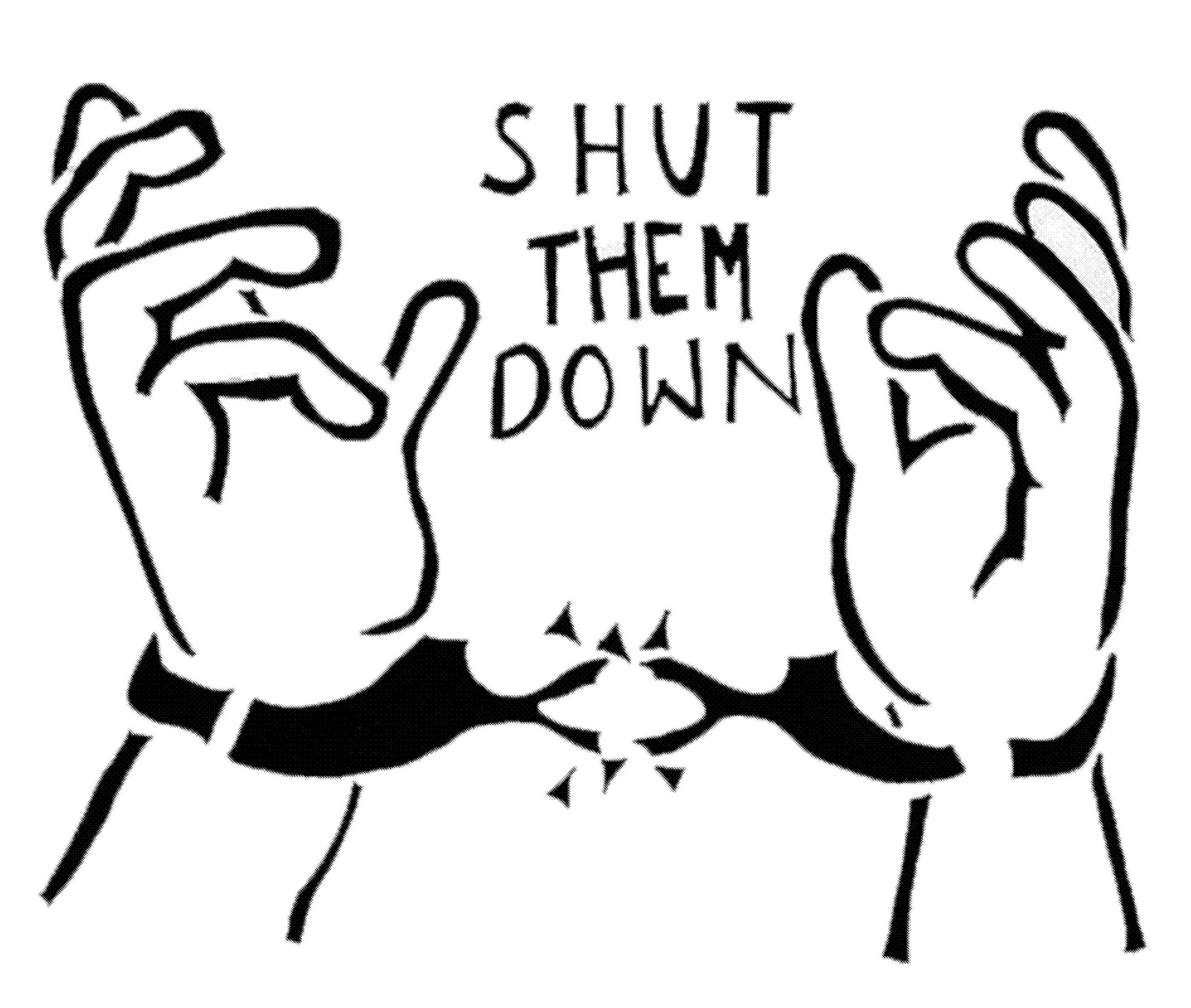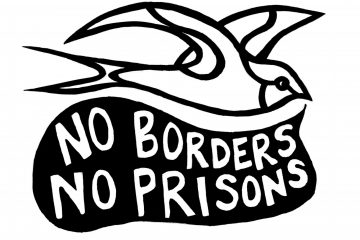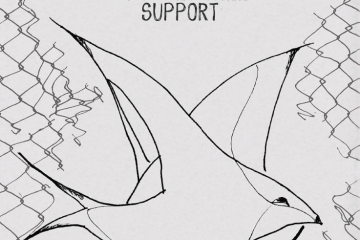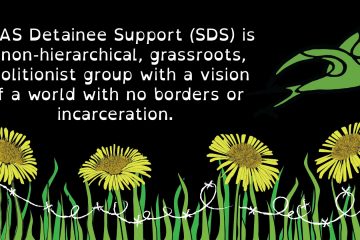Abolition and Transformative Justice

As the government grants the police, and other arms of the state, increasingly more power and protection, we are forced to ask ourselves: who is protecting those of us abandoned by the state and how can we seek justice when the state causes us harm? We see time and time again that those who design and uphold laws, supposedly in the name of public safety, are not held to account for breaching the law and the consequent harm they cause. Even when they are found guilty by the highest institutions of law and order, agents of the state retain stable incomes and positions of power and influence. With so many instances of abuse of power how can we trust these institutions to deliver us justice?
When we think of harmful behaviour and wrongdoing in terms of the criminal justice system – as is embedded in our daily lives from a young age – it is easy to overlook that laws are designed by the white elite to maintain social order and the flow of capital. This is reflected by landlords and employers continuing to accumulate wealth at the expense of others’ health and safety. No laws protect us from the harm that they cause, recent examples being the government’s decision to absolve landlords of the hazards posed by flammable cladding, or the lack of regulations protecting renters during the pandemic. When we think about harmful behaviour in terms of ‘harm’ rather than ‘crime’, it allows us to deepen our understanding of the extensive ways that we are hurt by the state, and how this violence manifests itself in so many forms in our personal relationships and homes. Understanding this helps us realise that we cannot depend on the state to achieve justice. How can we expect our colonisers, abusers and oppressors to help us achieve the nuanced kinds of justice that we deserve?
Transformative Justice is an Alternative to Punishment
“The State’s behaviour is violence, and it calls its violence ‘law’; that of the individual, ‘crime.’” – Max Stirner
The criminal justice system isolates and alienates all those it comes into contact with. Punitive methods of discipline and control have been entrenched in all aspects of our lives, from isolation and exclusion in schools to probation at work. These measures are not constructive or formative – rather they punish anyone who requires different kinds of learning or support. This teaches us from a young age that certain behaviours lead to success and financial security; those who contribute to society and the economy in an “acceptable” way to the state are recognised as worthy humans, while those who do not deserve to be punished. As children, we are often punished for doing ‘bad,’ and we are taught that justice is a reactionary act of inflicting something upon someone. Punitive justice also reproduces itself when we call for cops to be locked up, report colleagues to our bosses or police the behaviour of our loved ones. Although punishment often feels like the natural solution when someone causes us harm, transformative justice offers us alternatives.
Since long before the conception of the criminal justice system, Black, Indigenous and other colonised communities have had traditions of community accountability that have inspired the survivor-led transformative justice movement. This looks like groups of people – friendship circles, families, community institutions or specific community members – engaging in accountability circles, support bubbles, mediation, counselling and other healing practices. No two processes of community accountability are identical, as every group has different circumstances and requires nuanced approaches to community healing. Community accountability seeks to transform the material conditions of the ‘criminal’, acknowledging that when all are provided for, ‘crime’ is drastically reduced. It recognises the need for radical redistribution of wealth, inheritance, land, housing, food and healthcare.
Transformative Justice is Survivor-led
Transformative justice centres survivors of domestic, sexual and gendered violence and provides them with the resources and prolonged support to explore what they need to heal, and how that may relate to the harmdoer. In cases of reported sexual and domestic violence, police intervention and court hearings retraumatise and disempowers survivors. Their individual needs are disregarded; not even basic necessities such as long-term emotional support, shelter, emergency welfare and safety from deportation are guaranteed by the state. The findings of the court are often inadequate, and the few perpetrators that are sentenced are not held personally accountable to the individual and community that they harmed.
Given that most sexual, domestic and gendered violence is inflicted by people within our circles, we are honouring ourselves when we hold each other to account, especially considering that harm is felt not just by one individual survivor, but by the community as a whole. Transformative justice requires radical empathy and extensive building, connecting and educating within communities. We collectively imagine multi-dimensional solutions that dignify and uplift survivors and their healing, while also actively holding harmdoers to account and offering support in determining root causes of their actions and transforming their behaviour.
Transformative Justice is Collective Action
“There are no experts in transformative justice. We are all called to labour. We are all called to do our part. It is a collective project. So we are all responsible.” – Mariame Kaba
The systems as they currently stand are built to defend capitalism, heteropatriarchy, imperial border regimes, racism and anti-Blackness, ableism, transphobia, queerphobia, fatphobia and classism. Transformative justice calls on us to engage in continuous learning and unlearning around these systems of oppression and the violence that is ingrained into our behaviour and relationships as a result. In thinking about violence in terms of ‘harm’ rather than ‘crime’, we honour that we are far too complex to be categorised as either ‘guilty’ or ‘innocent’, and discover that we can hold ourselves and each other accountable for our actions. No one can say that they have never caused anyone harm, and transformative justice asks us to reckon with that. The carceral state individualises harm and isolates harmdoers which creates shame and guilt whereas transformative justice holds ourselves and our loved ones to account by respecting our humanity.
In our everyday lives, transformative justice might call for childcare, safehouses, walking each other home, food and toiletry drives, taxi funds, neighbourhood patrols and self-defence classes. Many sex worker, crisis relief and queer and trans mutual aid networks are well practised in this vital care-work which imagines and builds towards a future beyond the carceral state. Life-saving economic reform such as universal rent cuts, significant pay increase and reduced working hours as well as the economic recognition of caregiving and household labour would give us the capacity to connect with our neighbours and strengthen our community bonds.
Lovingly sharing knowledge and skills allows us to resolve conflicts within our communities and understand that nothing is not our problem – we must take on issues collectively and share the burden. With common radical empathy, we can solve problems together rather than waiting until a problem affects us to care. We can find a sense of safety in each other by abolishing the cop in our minds. Abolition means that no one is disposable and envisions a world where everyone is provided for, healthcare is unconditionally accessible and we are all equipped to emotionally support and nurture each other.
Our Abolition reading group meets once a month. Everyone is welcome, whether you’re a seasoned abolitionist organiser or just beginning to get interested in a world without borders and prisons. Email s.det.sup@gmail.com to get involved.



0 Comments